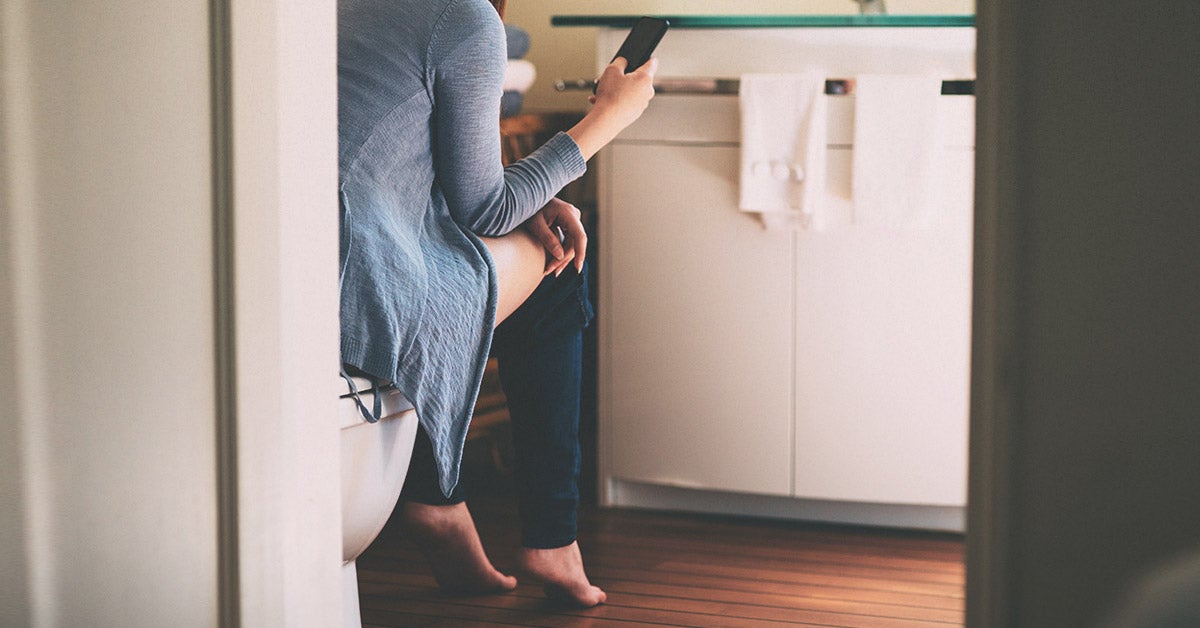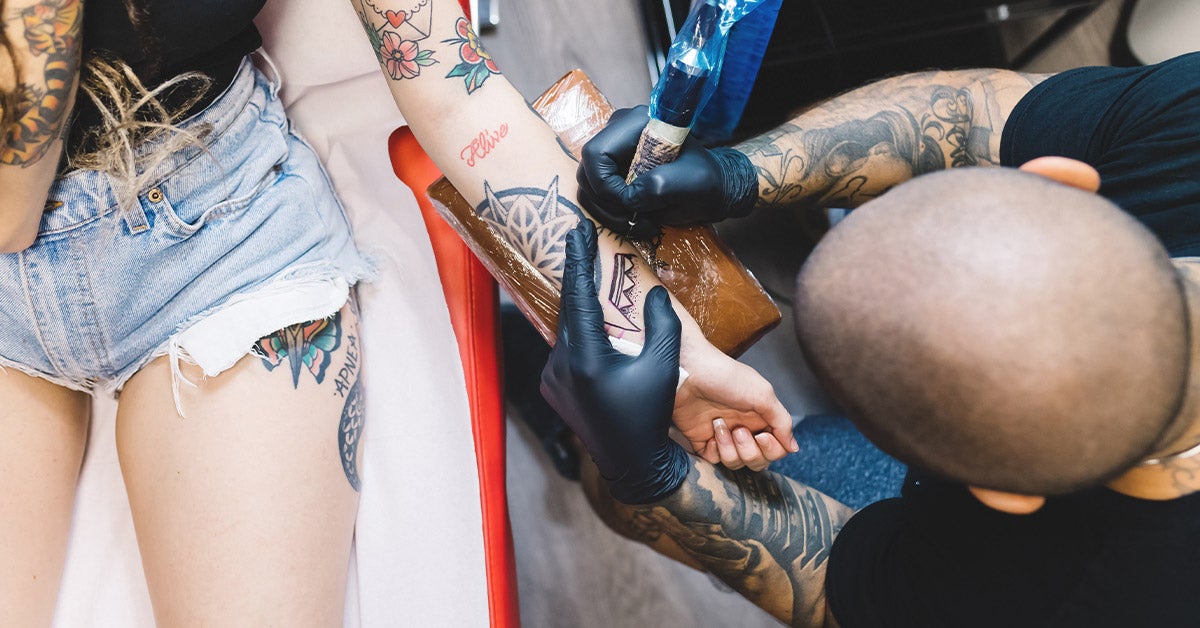Butt Bruise: Causes, Symptoms, Treatments, and More
Bruises, also called contusions, on the butt aren't that uncommon. This type of usually minor injury happens when an object or another person makes forceful contact with the surface of your skin and injures muscle, tiny blood vessels called capillaries, and other connective tissues below the skin.
Bruises are especially common if you play any kind of sports that can (literally) knock you on your butt, such as:
- football
- soccer
- hockey
- baseball
- rugby
You can also get them easily if you:
- sit down too hard
- get hit on the butt too forcefully with someone's hand or with another object
- run into a wall or piece of furniture backwards or sideways
- get a shot with a large needle in your butt
And like most other bruises, they typically aren't that serious. You'll probably get bruises all over your body throughout your life, some of which you may look at and think: How did that get there?
But when is a bruise just a bruise, and when is it worth talking to your doctor about? Let's get into the details.
A tender or painful reddish, bluish, yellowish spot with a clear border around it distinguishing it from surrounding skin is the most visible symptom of a bruise.
Capillary bleeding is what causes the reddish-blue color of most bruises. Muscle or other tissue damage tends to cause additional tenderness or pain around the bruise when you touch it.
Most of the time, these are the only symptoms you'll notice, and the bruise will go away on its own in mere days. More severe bruises or one that covers a large area of skin may take longer to heal, especially if you keep getting hit in that area.
Other possible symptoms of bruises include:
- firm tissue, swelling, or a lump of collected blood beneath the area of the bruise
- mild aching when you walk and put pressure on the bruised buttock
- tightness or pain when you move the nearby hip joint
Typically, none of these symptoms require a visit to your doctor, but if you believe that your bruise may be a symptom of a more severe injury or condition, see your doctor to have it diagnosed.
See your doctor right away if you're concerned about a bruise or its symptoms following an injury.
In most cases, a bruise isn't a cause for concern, but if symptoms don't go away on their own after a few days or become worse over time, you may need immediate medical attention.
Your doctor will begin by performing a full physical examination of your entire body, including the bruised area in particular to look for any signs of severe injury.
If your doctor is concerned that you might have injured any tissues around the bruised area, they may also use imaging technologies to get a more detailed look at the area, such as:
- X-ray. This will help find broken bones or injured joints.
- Ultrasound. This looks for muscle injuries, such as a muscle tear with hematoma formation.
- MRI. MRIs provide detailed, three-dimensional imaging of the lower back and pelvis, especially if your doctor suspects hip or lower back injuries that may involve nerves, such as spinal nerve compression.
- CT scan. These images may help find gluteal region and pelvis injuries.
A typical butt bruise is treated easily. Start with the RICE method to keep pain and swelling down:
- Rest. Stop doing whatever caused you to get bruised, such as playing sports, to keep you from more bruising or further exerting any damaged muscles or tissues. If possible, wear padding around your butt to prevent any further violent or traumatic contact.
- Ice. Make a cold compress by wrapping an ice pack or frozen bag of vegetables in a clean towel and placing it gently on the bruise for 20 minutes.
- Compression. Wrap a bandage, medical tape, or other clean wrapping material firmly but gently around the bruise.
- Elevation. Raise the injured area above the level of your heart to keep blood from pooling. This is optional for a butt bruise.
Continue using this method several times a day, 20 minutes a time, until pain and swelling aren't bothering you anymore. Replace any bandages at least once a day, such as when you bathe or shower.
Here are some other ways to treat a bruise and its symptoms:
- Take a pain relieving medication. A nonsteroidal anti-inflammatory drugs (NSAID), such as ibuprofen (Advil), may make any accompanying pain more bearable.
- Apply heat. You can use a warm compress once initial pain and swelling have gone down.
- Gentle stretches or massage. These can help you gain back full range of motion and relieve any soreness.
- Stay off your feet. Rest until the bruising, pain, and swelling have gone down, especially if you think your muscles or joints may have been injured.
Some complications of a severe butt bruise or other injury may require more than just at-home treatments. These require your doctor's care and may include:
- surgical drainage of blood pooling in a hematoma or pressure caused by fluid buildup due to compartment syndrome
- surgical removal of bone tissue that's grown into the muscle due to myositis ossificans
See your doctor right away if you experience any of the following symptoms:
- numbness or loss of sensation in your butt or one or both legs
- partial or total loss of ability to move your hips or legs
- inability to bear weight on your legs
- severe or sharp pain in your butt, hips, or legs, whether you're moving or not
- heavy external bleeding
- abdominal pain or discomfort, especially if it's accompanied by nausea or vomiting
- a purplish blood spot, or purpura, that appears without an injury
Follow your doctor's instructions about returning to playing sports or other physical activities after a major bruise or butt injury. Getting back into action too quickly can cause further injury, especially if muscles or other tissues haven't fully healed.
Take some of the following measures to prevent butt bruises and other butt injuries from happening:
- Protect yourself. Wear protective paddingor other protective gear when you play sports or other activities that may knock you on your butt.
- Be safe when you play. Don't make any bold or risky moves during a game or while being active if there isn't anything to break your fall, such as padding on the ground.
Butt bruises usually aren't a serious matter. Small, minor bruises should start to go away in a few days on their own, and larger bruises may take more than a couple weeks to fully heal.
See your doctor as soon as possible if you notice any abnormal symptoms, such as numbness, tingling, loss of range of motion or sensation, or if symptoms don't go away on their own. Your doctor can diagnose any injury or underlying condition that may be affecting your bruise.
-
 6 interesting genetic traits that children will inherit from their parents
6 interesting genetic traits that children will inherit from their parents
-
 7 effects of asparagus on child development
7 effects of asparagus on child development
-
 Does cutting blood hair for babies bring good luck?
Does cutting blood hair for babies bring good luck?
-
 The more babies eat, the higher the height they develop, especially the second kind
The more babies eat, the higher the height they develop, especially the second kind
-
 Children with chicken pox should eat to quickly recover from the disease, without leaving a deep scar?
Children with chicken pox should eat to quickly recover from the disease, without leaving a deep scar?
-
 The more food is cooked, the better it can be for health, especially the second type
The more food is cooked, the better it can be for health, especially the second type
-
 How to Improve Your Quality of Life with Metastatic Breast Cancer
How to Improve Your Quality of Life with Metastatic Breast Cancer
-
 How to Support Your Mental Health with Metastatic Breast Cancer
How to Support Your Mental Health with Metastatic Breast Cancer
-
 Vaginal Rash Causes, Symptoms, Diagnosis, and Treatments
Vaginal Rash Causes, Symptoms, Diagnosis, and Treatments
-
 Discharge After Period: Color, Consistency, and Causes
Discharge After Period: Color, Consistency, and Causes
-
 Green Soap's Role in Keeping a Tattoo Site Sanitary
Green Soap's Role in Keeping a Tattoo Site Sanitary
-
 Sore Throat and Headache: Causes, Treatment, Prevention
Sore Throat and Headache: Causes, Treatment, Prevention































